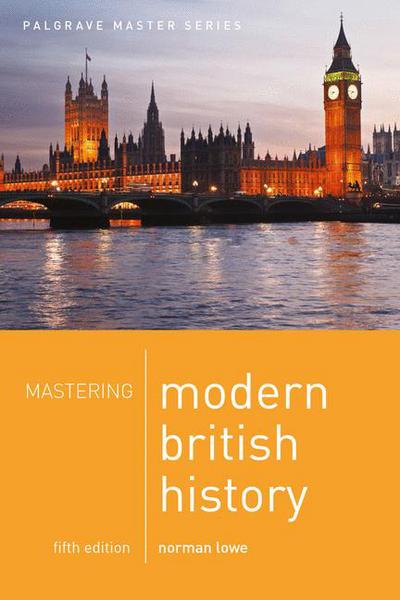


Are you sure you want to reset the form?
Your mail has been sent successfully
Are you sure you want to remove the alert?
Your session is about to expire! You will be signed out in
Do you wish to stay signed in?
Read the Sources A to E and then answer the questions that follow.
Source A
| Extracts from the diary of Charles Greville, clerk to the Privy Council (1821-59) and a close personal friend of Wellington. As a speaker he [Castlereagh] was monotonous and never eloquent...but he was always heard with attention...I believe he was considered one of the best managers of the House of Commons who ever sat in it...and he was possessed of good taste, good humour and agreeable manners. With these qualities, it may be asked why he was not a better Minister. I believe he was seduced by his vanity, that his head was turned by emperors, kings and congresses and that he was resolved that the country which he represented should play as conspicuous a part as any other in the political dramas which were acted on the Continent. The result of his policy is this...that we have associated ourselves with members of the Holy Alliance, and gone along with the acts of ambition and despotism in such a manner as to have drawn upon us the hatred of the nations of the Continent. Source: Quoted in P.W.Wilson (ed.), The Greville Diary, Doubleday & Co., 1927. |
Source B
| Extracts from the diary of Mrs Arbuthnot, the wife of a Tory politician Castlereagh managed the foreign affairs of the country with a judgement and ability that will hand down his name with honour to posterity, when those of his pathetic critics will be buried in oblivion...When he had to make a statement or an opening speech, he was generally flat and dull and scarcely commanded the attention of the House...but his management was so good, and he was himself so gentlemanlike and so high minded, that he was one of the most popular leaders the Government ever had. Source: Quoted in F.Bamford and the Duke of Wellington (eds.) rs Arbuthnot's Journal, Vol l, Macmillan, 1950. |
Source C
| Comments from a modern historian, Asa Briggs. There was a vigorous debate in Parliament when the Whigs strongly criticised Castlereagh’s surrender to European ‘reaction’, not knowing that Castlereagh in private was referring to the Holy Alliance (September 1815) between the absolute monarchs of Russia, Prussia and Austria as ‘a piece of sublime mysticism and nonsense’...In fact, during these years Castlereagh managed to steer clear of the Holy Alliance and refused to identify Britain too closely with the policies of the European powers...Before he committed suicide in 1822 Britain had begun to part company with the other great powers on the question of intervention to maintain autocratic government in Spain, Portugal and Sicily. Source: Asa Briggs, The Age of Improvement, Longman, 1959. |
Source D
| Extracts from Castlereagh’s confidential State Paper, 5 May 1820. The principle of one state interfering by force in the internal affairs of another, in order to enforce obedience to the governing authority, is always a question of the greatest moral as well as political delicacy...It is important to observe that to generalise such a principle and to think of reducing it to a system, or to impose it as an obligation, is a scheme utterly impracticable and objectionable...This principle is perfectly clear and intelligible in the case of Spain. We may all agree that nothing can be more lamentable, or of more dangerous example, than the recent revolt of the Spanish army...but it does not follow that we have therefore equal means of acting upon this opinion……………… Besides, the people of this country would probably not recognise that our safety could be so far threatened by any state of things in Spain as to warrant their government in sending an army to that country to meddle in its internal affairs. We cannot conceal from ourselves how generally the acts of the King of Spain since his restoration have made his government unpopular, and how impossible it would be to reconcile the people of England to the use of force in order to replace power in his hands. Source: Quoted in A.Aspinall and F.A.Smith (eds.), English Historical Documents vol XI, Eyre & Spottiswoode, 1959. |
Source E
| Another modern historian, Jasper Ridley, writes about events in Spain, 1820-2. In 1820, the Spanish army gathering at Cadiz to embark for South America to recapture the Spanish colonies, mutinied and overthrew the absolutist monarch Ferdinand VII. They reintroduced the liberal constitution of 1812...Metternich, Tsar Alexander II, the King of Prussia and Louis XVIII united to suppress liberalism and Louis XVIII asked permission of the powers to invade Spain and restore Ferdinand. At the Congress of Verona in 1822 only Britain opposed the proposal and worked for a compromise. The government tried to persuade the Spanish liberals to restore some of Ferdinand’s powers, hoping this would prevent a French invasion. The liberals indignantly rejected the British proposals. The French army therefore crossed the frontier and overran Spain without much difficulty. The liberal leaders surrendered to Ferdinand on promise of their lives, but he broke his word and had them all shot. He now established an even more brutal police state than that which had existed before 1820...The Opposition attacked the government’s policy and accused Castlereagh of allowing France to ‘conquer’ Spain. Source: Jasper Ridley, Lord Palmerston, Constable, 1970. |
